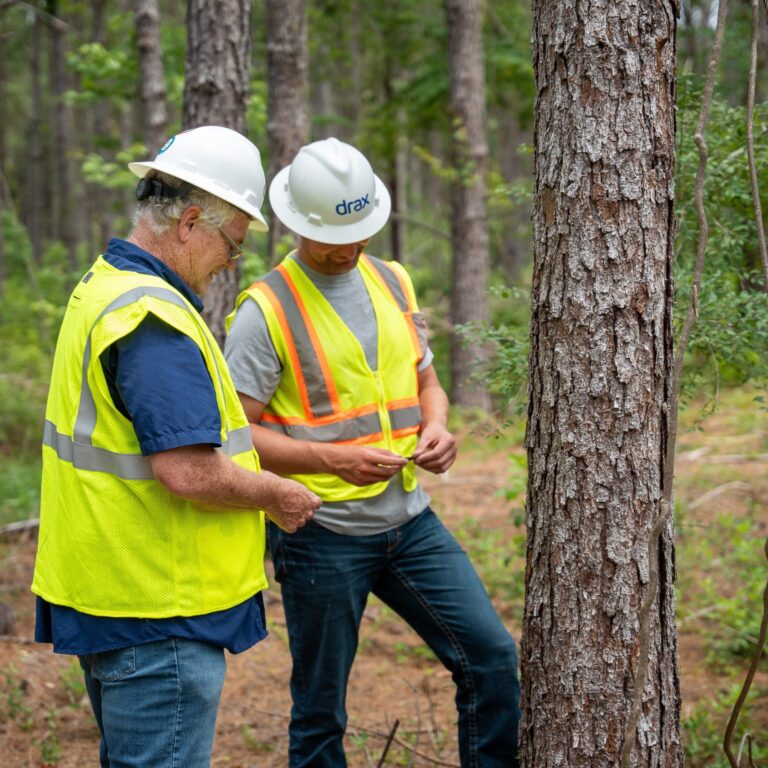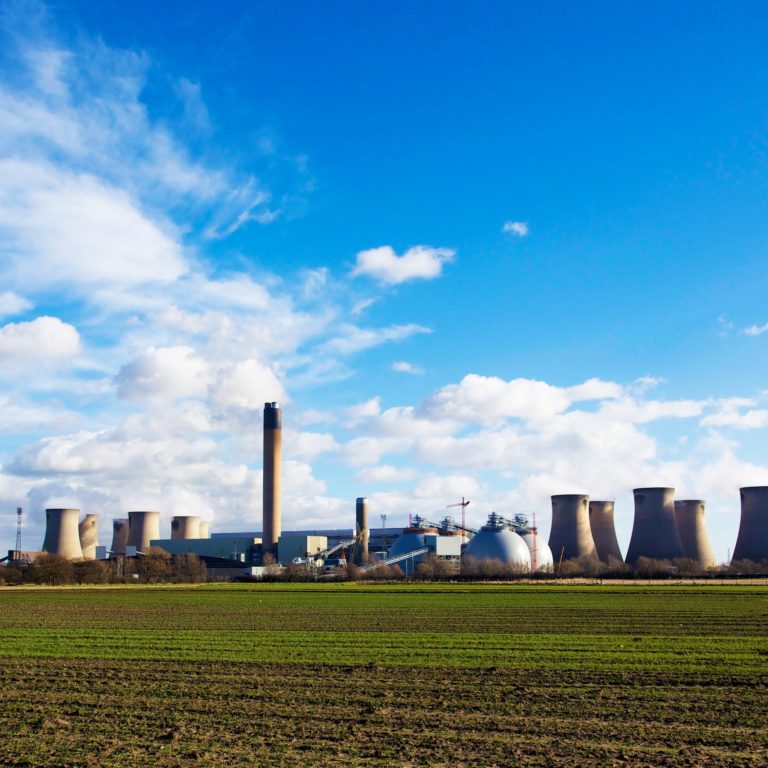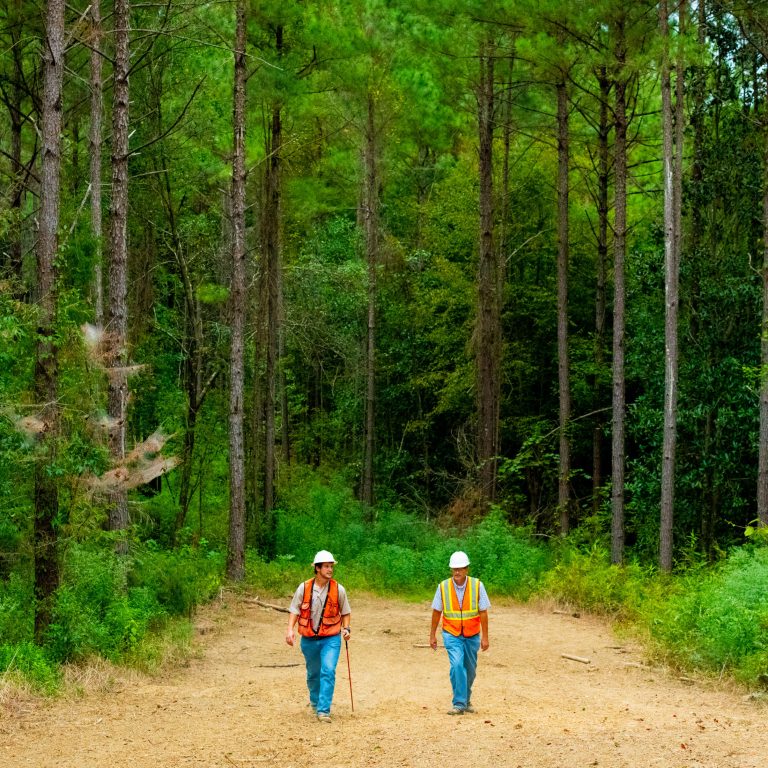- A methodology developed by renewable energy pioneers Drax and Stockholm Exergi has been validated by DNV, an organisation which delivers world-renowned testing, certification and technical advisory services to the energy sector.
- The methodology demonstrates compliance with ISO standards and gives buyers of carbon dioxide removals (CDRs) delivered using bioenergy with carbon capture and storage (BECCS) confidence in their integrity.
- The methodology also supports the development of the voluntary carbon market for CDRs, which will play an important role in the scaling of such technologies and delivery of Net Zero.
DNV, the independent energy expert and assurance provider, has validated a new methodology for the certification of net carbon dioxide removals delivered using bioenergy with carbon capture and storage (BECCS).
DNV’s endorsement of the methodology developed by Drax and Stockholm Exergi, is an important milestone, which will support and enable the deployment of BECCS, a vital climate saving technology which both companies plan to deploy.
The comprehensive methodology validated by DNV will ensure there is a rigorous approach which will provide confidence in the quality and sustainability of CDRs from BECCS – a vital technology due to its ability to deliver reliable renewable energy as well as millions of tonnes of carbon dioxide removals.
This technology is widely acknowledged by leading authorities on climate change as being essential to efforts to address global warming, yet up until now there has been no comprehensive set of best-practice standards for measuring, reporting and verifying carbon removals delivered by BECCS.
Setting rigorous standards that give buyers confidence in the quality and sustainability of CDRs will be essential in efforts to scale the market for high-integrity credits from BECCS.
The methodology Drax and Stockholm Exergi have developed provides a comprehensive and conservative framework with which to quantify the net carbon dioxide removals delivered. Its validation by DNV demonstrates that it complies with ISO14064:2 (International Organisation for Standardisation) standards.
Lucy Craig, Senior Vice President of Growth, Innovation and Digitalization, Energy Systems at DNV, stated:
“Technology based Carbon Dioxide Removal techniques such as BECCS have a critical role to play in the delivery of Net Zero. Drax and Stockholm Exergi have collaborated to develop a robust methodology to both quantify the volumes of Carbon Dioxide removed from the atmosphere and define safeguards to ensure the sustainability of such techniques.”
“DNV has used a comprehensive process to validate that the methodology is aligned with ISO 14064-2, including a stakeholder engagement process to ensure that views of stakeholder groups have been considered.”
The methodology is the most thorough to date incorporating sustainability safeguards, giving confidence to CDR buyers and investors and has been submitted into the EU’s consultation process for a carbon removal certification framework.
The validated methodology is a collaborative initiative by the two leaders in BECCS technology, spelling out a new framework for high-integrity permanent removals with guardrails to ensure sustainable use of biomass and a conservative quantification of net removals.
Drax aims to become the global leader in delivering large-scale and high-integrity carbon removals and it’s UK BECCS project secured development consent from the UK government earlier this year.
Angela Hepworth, Drax’s Commercial Director, said,
“It is absolutely critical that we have credible, transparent and trustworthy standards in place if we are to scale the market for carbon dioxide removals (CDRs) and reach the volume needed to keep warming to 1.5 degrees Celsius.
“Drax is proud to be pioneering this comprehensive methodology which aims to set the standard for CDRs delivered by BECCS, and provide governments, customers and the market with the confidence needed to invest in high-integrity durable credits.”
Stockholm Exergi plans to build Europe’s first large-scale facility for carbon removals using BECCS.
Erik Rylander, Commercial Director for BECCS at Stockholm Exergi, said:
“With this initiative, we want to define and accelerate the development of sustainable BECCS, provide clarity to off-takers of Carbon Removal Units on the Voluntary Carbon Market and reach out to all other BECCS developers to join the initiative to drive a convergence of standards.”
“Only if we can avoid market fragmentation and agree on a robust, sustainable standard for BECCS will market demand be unleashed and the permanent removals industry scale to the levels deemed necessary by the IPCC to limit global warming to 1.5 °C.”
The new methodology looks to present an industry leading, principle-led approach, which can be taken on and developed further by standard setters to enable a robust and rigorous measurement of net removals.
You can read the full methodology here.
ENDS
Media contacts:
Drax
Ali Lewis, Head of Media & PR
E: ali.lewis@drax.com
T: 07712 670888
DNV
Neil Slater, Head of Media Relations
Energy Systems, DNV
E: neil.slater@dnv.com
Stockholm Exergi
Johan Börje, BECCS Development
E: johan.borje@partners.stockholmexergi.se
Notes to editors:
The methodology validated by DNV has been developed with consideration to the Core Carbon Principles developed by the Integrity Council for the Voluntary Carbon Market. This includes additionality, permanence, robust quantification of emissions reductions and removals, no double counting, effective governance, tracking, transparency, robust independent their party validation and verification, sustainable development benefits and safeguards, and contribution to net zero transition. As a project developer, Drax will seek to align with the important work of the Integrity Council as it continues to assess categories of carbon credits.
Research shows that to limit global warming to 1.5 degrees Celsius and reach global net zero, the world needs CDRs at a gigaton scale.
CDRs can be used by organisations to neutralise their hard-to-abate emissions, achieve net zero or a carbon negative status, whereby more carbon dioxide is removed from the atmosphere than is produced across their operations, as a result of the CDRs they purchase.
About Drax
Drax Group’s purpose is to enable a zero carbon, lower cost energy future and in 2019 announced a world-leading ambition to be carbon negative by 2030, using bioenergy with carbon capture and storage (BECCS) technology.
Drax’s around 3,000 employees operate across three principal areas of activity – electricity generation, electricity sales to business customers and compressed wood pellet production and supply to third parties. For more information visit www.drax.com
Power generation:
Drax owns and operates a portfolio of renewable electricity generation assets in England and Scotland. The assets include the UK’s largest power station, based at Selby, North Yorkshire, which supplies five percent of the country’s electricity needs.
Having converted Drax Power Station to use sustainable biomass instead of coal it has become the UK’s biggest renewable power generator and the largest decarbonisation project in Europe. It is also where Drax is piloting the groundbreaking negative emissions technology BECCS within its CCUS (Carbon Capture Utilisation and Storage) Incubation Area.
Its pumped storage, hydro and energy from waste assets in Scotland include Cruachan Power Station – a flexible pumped storage facility within the hollowed-out mountain Ben Cruachan.
The Group also aims to build on its BECCS innovation at Drax Power Station with a target to deliver 4 million tonnes of negative CO2 emissions each year from new-build BECCS outside of the UK by 2030 and is currently developing models for North American and European markets.
Pellet production and supply:
The Group has 19 operational pellet plants and developments with nameplate production capacity of around 5 million tonnes a year.
Drax is targeting 8 million tonnes of production capacity by 2030, which will require the development of over 3 million tonnes of new biomass pellet production capacity. The pellets are produced using materials sourced from sustainably managed working forests and are supplied to third party customers in Europe and Asia for the generation of renewable power.
Drax’s pellet plants supply biomass used at its own power station in North Yorkshire, England to generate flexible, renewable power for the UK’s homes and businesses, and also to customers in Europe and Asia.
Customers:
Drax supplies renewable electricity to UK businesses, offering a range of energy-related services including energy optimisation, as well as electric vehicle strategy and management.
To find out more go to the website www.energy.drax.com
About DNV
DNV is the independent expert in risk management and assurance, operating in more than 100 countries. Through its broad experience and deep expertise DNV advances safety and sustainable performance, sets industry benchmarks, and inspires and invents solutions.
Whether assessing a new ship design, optimizing the performance of a wind farm, analyzing sensor data from a gas pipeline, or certifying a food company’s supply chain, DNV enables its customers and their stakeholders to make critical decisions with confidence.
Driven by its purpose, to safeguard life, property, and the environment, DNV helps tackle the challenges and global transformations facing its customers and the world today and is a trusted voice for many of the world’s most successful and forward-thinking companies.
In the energy industry:
DNV provides assurance to the entire energy value chain through its advisory, monitoring, verification, and certification services. As the world’s leading resource of independent energy experts and technical advisors, the assurance provider helps industries and governments to navigate the many complex, interrelated transitions taking place globally and regionally, in the energy industry. DNV is committed to realizing the goals of the Paris Agreement and supports customers to transition faster to a deeply decarbonized energy system.
Learn more at www.dnv.com
About Stockholm Exergi
As Sweden’s leading district heating company with a €700 million in turn-over, Stockholm Exergi pioneers sustainable and circular heating, electricity and cooling solutions in Stockholm, Sweden. With a history of launching innovative solutions ranging from heat-recovery from data centers, advanced waste sorting to intelligent energy management, Stockholm Exergi is now working to become the largest supplier of permanent carbon removals within the European Union. Stockholm Exergi is owned by the City of Stockholm and a consortium of leading European pension funds (APG, Alecta, PGGM, Keva and AXA).




















